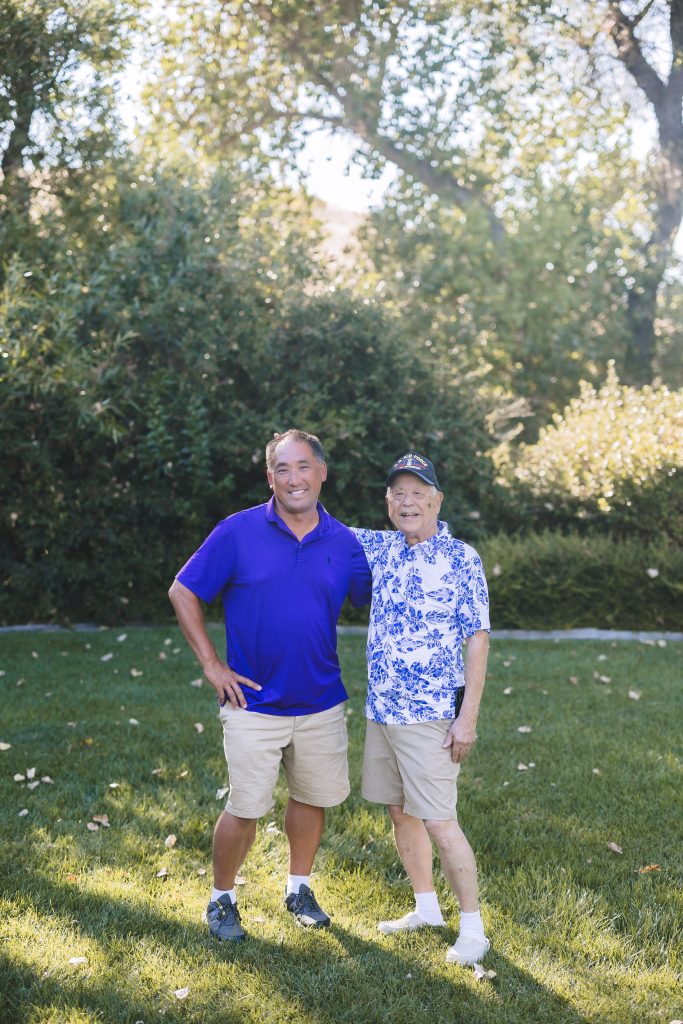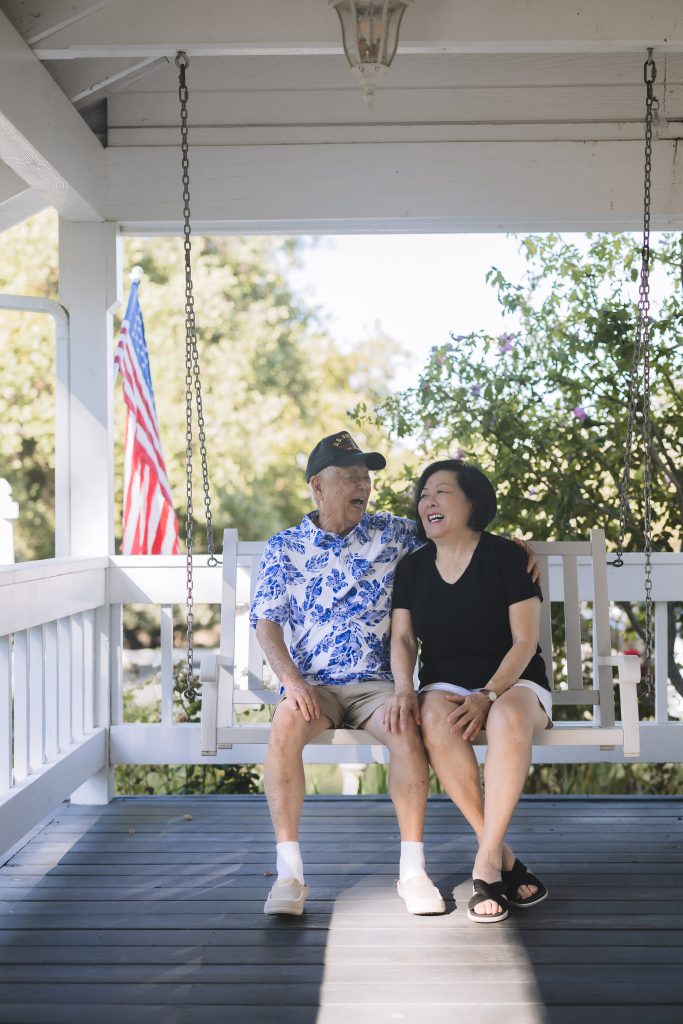By Rachel Lu
(This story is made possible with support from AARP)
At 87 years old, Japanese American and former veteran Toki Endo’s biggest wish was to unite his big extended family. Ten years ago, his older brother Nori passed away, and the brothers had become estranged following their military enlistments and their children were never able to meet each other. Toki wanted to tell Nori’s family how much his brother meant to him.
This past August, Wish of a Lifetime, an AARP program, arranged for the family to unite at a farmhouse in central California.
The Endos grew up in Salinas, California. Looking back, Toki’s most vivid memory of Nori was moments before the family was shipped away to the incarceration camp, Poston War Relocation Center, in the desert of southern Arizona during World War II.
“I remember I was playing outside on the sidewalk with a little toy car. Nori came up to me, grabbed me by the arm, and said: ‘Let’s go. We’re moving,’” Toki told AsAmNews.
At the time, he was around five years old, and due to the trauma, much else about life incarcerated has been blocked out from his memory since.
Later, the family moved to Minneapolis for a year before settling in Washington, D.C. where the Endo brothers spent their growing years after the war. Toki recalls their father feeling devastated by the forced relocation and that he had no desire to resume the family’s lives in California.

In D.C, Toki and Nori’s lives began to diverge in their teenage years, but Toki recalls his brother giving him a helping hand when he needed it most. In college, Toki was occupied with playing pool and ping pong rather than focusing on his studies, and Nori helped him prepare a study plan. The following year, Toki went from junior standing probation to an impressive 3.75 grade point average.
Nori had always dreamt of flying, and to their father’s dismay, he enlisted as a naval air activation cadet, giving up on his father’s dreams for him to become a doctor. Toki, who describes himself as the less motivated second son, wanted to go into military intelligence and ended up in the Air Force on a whim.
From there, the brothers were each embroiled in their service for the country and their paths never crossed again, often separated by their duty to the military. When Toki was on his first assignment in Columbus, Mississippi, Nori was an instrument flight instructor at Corpus Christi, Texas. When Nori got married, Toki couldn’t make it to the wedding because he was sitting on alert at Strategic Air Command. Nori and Toki were both deployed to Vietnam, still, they never saw each other and only exchanged letters.
Once, Toki wrote to his brother that he was involved in a mid-air collision, and Nori wrote back enquiring about Toki’s survival experience along with a care kit.
“He had the parachute makers aboard his carrier make the Navy pilot survival vest, which he sent me along with a couple of tiny little plastic survival kit packs,” said Toki.
When the brothers both retired, they were still separated on the coasts of the United States, with Nori settling down in Annapolis, MD and Toki starting a family in Southern California.

After Nori passed away and his wife now undergoing cancer treatment, Toki realized that his children must get a chance to meet and spend time with their aunt. Toki’s biggest wish is for his family to come together.
“My oldest brother’s children and my children, because of our separation geographically, have never been able to mingle with one another and really get to know one another, so it had always been my wish that somehow I could get them together,” said Toki.
Tom Wagenlander, Executive Director of Wish of a Lifetime, heard about Toki’s story and was touched by the Endo brothers’ commitment to serving their country despite the injustice of incarceration they endured during World War II. For Wagenlander, whose grandfather immigrated from China, it’s personally inspiring to hear stories of those who dealt with discrimination but still lived selflessly.
“This isn’t [just] a person of Japanese descent being incarcerated and serving the military,” said Wagenlander, “This is part of the American experience. Rarely do we see stories having such a rich layer of elements that are so inspiring.”
Wish of a Lifetime specifically grants wishes to older adults. As aging is a universal experience, the foundation hopes to give back to those of the previous generation, like Nori and Toki, who fought for the freedoms that are enjoyed today.
Toki said he instantly felt the connection between his family when they came together for the first time.
“It was a beautiful house, a beautiful setting, so we all got together, and it was just joy at watching the first interactions and then watching the family, in just two days, just milled together,” said Toki.
At the reunion, Toki’s niece said to him: “Uncle Toki, now you’re the patriarch of a family.” Patriach- the title struck Toki, who thought to himself, what do patriarchs do? The answer emerged when he saw his grandchildren get spoiled by their great aunt, and his and Nori’s children plan for a crab fest together for the following year.
“I was really overjoyed to see that the family could count on each other,” said Toki.
AsAmNews is published by the non-profit, Asian American Media Inc.
We are supported through donations and such charitable organizations as the Robert Wood Johnson Foundation. A huge thank you to all our readers who supported our year-end giving campaign. Not only did you help us reach our goal, you busted through it. Donations to Asian American Media Inc and AsAmNews are always tax-deductible. It’s never too late to give.
Please also follow us on Instagram, TikTok, Facebook, YouTube and X.


I did not read anything related to an estrangement. Since I am unable to read between the lines, I can only assume that they separated when Nori joined the Navy. The story does not mention whether or not one or both sis or did not attend family celebrations and funerals back East.